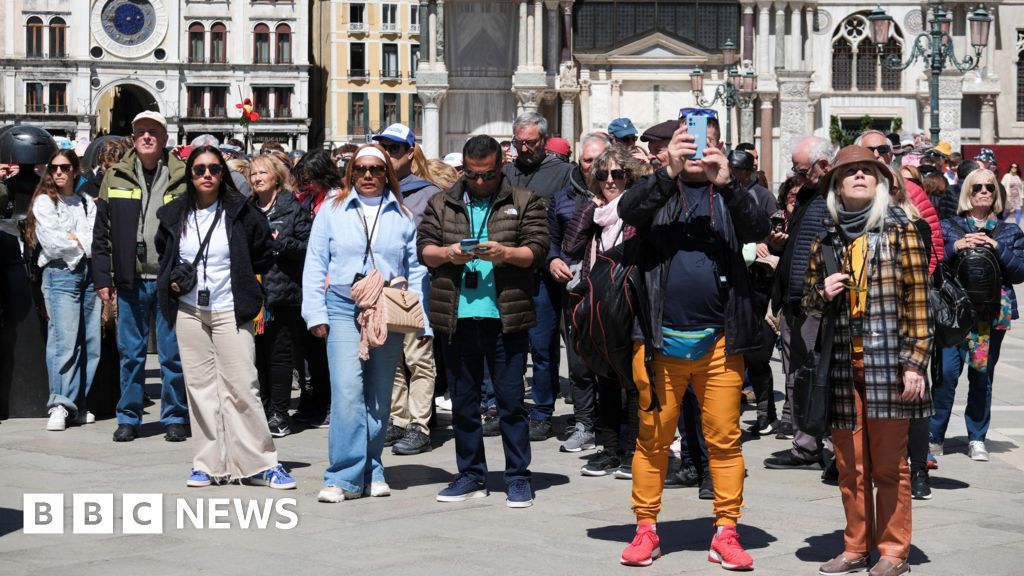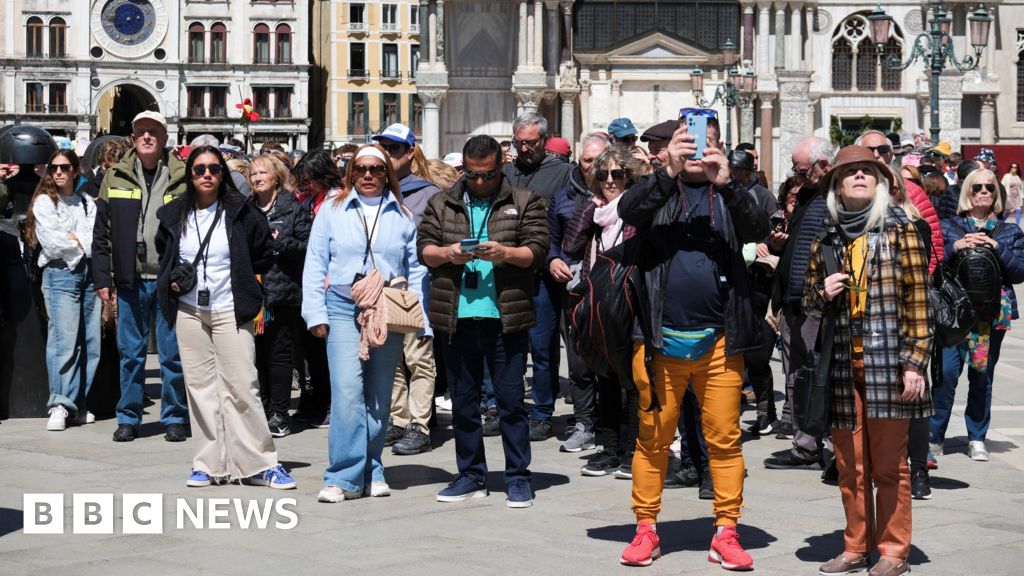
Venice is to double the number of days it charges tourists an entrance fee in 2025, following a “successful” trial last year, the city’s mayor said.
Luigi Brugnaro said the objective remained that of discouraging tourists from visiting the city on the same days “to give Venice the respect it deserves”.
Day trippers who book ahead will have to pay €5 (£4.17; $5.41) to access the Italian city on certain days between April and July, rising to €10 if they book less than four days in advance.
A charge was first introduced last April and it covered 29 days – mostly weekends and public holidays – over a four-month period.
The tax will be applied every Friday through Sunday and on public holidays between 18 April and 27 July 2025, for a total of 54 days.
All visitors over the age of 14 will have to pay the charge on their phones and download a QR code to show inspectors, who will check people at random in common arrival areas, like the train station.
Those without a ticket risk getting a fine.
As with the previous charge, people with hotel and guest house reservations will be exempt, as will residents of the Veneto region, students enrolled at Venice university, and those visiting relatives who live in Venice.
“Venice has gone from being the city most exposed to and criticised for the phenomenon of overtourism, to being the city that is reacting to this phenomenon the earliest and most proactively on the global stage,” said city councillor Simone Venturini.
According to Italian media, in the first eight days of the scheme in April Venice authorities collected the amount they were hoping to make in three months.
By the end of the trial period in mid-July, the city had collected about €2.4m (£2m; $2.5m) in entrance fees.
But mayor Brugnaro said he would have to wait for further analysis to see whether the budget for the scheme completely breaks even.
The cost of the ticket booking platform and the communication campaign that followed the announcement of the initiative cost around €3m, Italian media reported.
Venice opposition councillor Giovanni Andrea Martini said in July that the entrance fee system was a “failure” as it had not helped spread out the flow of tourists that visit Venice.
At the time, Mr Martini also said that a potential raise of the fee from €5 to €10 was be “useless” and would merely “turn Venice into a museum”.
Last year Unesco said the city should be added to a list of world heritage sites in danger, as the impact of climate change and mass tourism threaten to cause irreversible changes to it.
And in 2021, large cruise ships were banned from entering the historic centre of Venice via the Giudecca canal after a ship crashed into a harbour.
Critics also argued that the ships were causing pollution and eroding the foundations of the city, which suffers from regular flooding.



